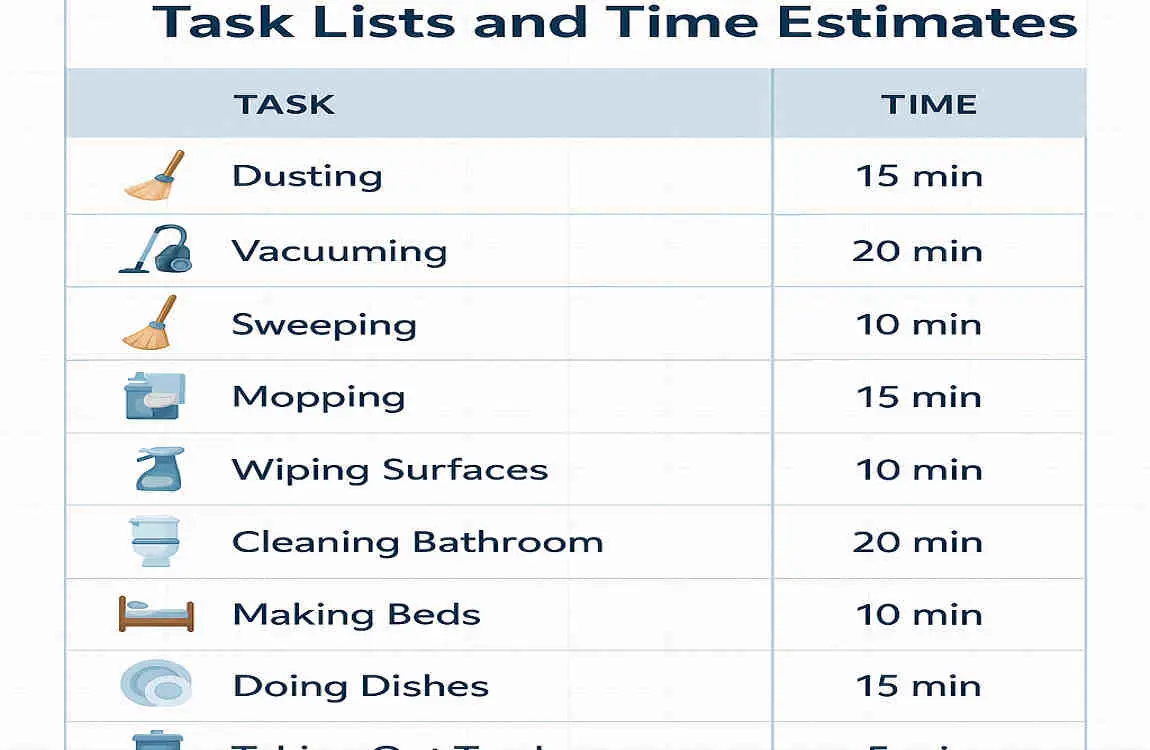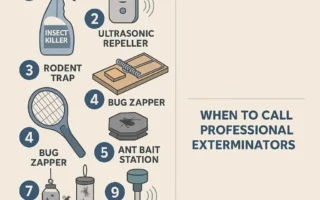Maintaining a clean and organized home is essential for a happier, healthier, and stress-free life. But when it comes to house cleaning, one common question arises: how many hours a day should you clean your house?
If you’ve ever felt unsure about how to balance cleaning with your busy schedule or wondered if you’re spending too much (or too little) time tidying up, you’re not alone. The good news is that creating a customized house cleaning schedule doesn’t have to be overwhelming!
Why a Daily Cleaning Schedule Matters

A consistent daily cleaning schedule isn’t just about keeping your home looking neat. It can have a deep impact on your overall well-being. Let’s explore some of the key benefits of daily cleaning:
Health and Hygiene
Cleaning regularly prevents the buildup of dust, allergens, and bacteria that can harm your health. A clean home helps reduce allergies, respiratory issues, and the spread of germs.
Stress Reduction and Mental Health
Walking into a clean, clutter-free space can instantly improve your mood. Clutter often causes anxiety and stress, making it harder to relax at home. A daily cleaning routine eliminates this problem by maintaining order and simplicity.
Home Maintenance and Longevity
Regular cleaning protects your furniture, appliances, and home from wear and tear. For instance, vacuuming carpets frequently prevents dirt from embedding into fibers, preserving their lifespan.
By sticking to a daily cleaning schedule, you’ll not only enjoy a cleaner home but also save time and money in the long run.
Factors Influencing Your Cleaning Schedule
When deciding how much time to spend cleaning each day, it’s important to consider your unique circumstances. Below are some factors that affect your house cleaning needs:
Household Size and Number of Occupants
A larger household naturally creates more mess. If you live alone, a quick 30-minute cleaning session may be enough. However, families with children or multiple adults might require more time.
Presence of Pets
Pets can bring joy, but they also require extra cleaning tasks. Shedding fur, muddy paw prints, and pet odors often require daily attention, especially if you have dogs or cats.
Lifestyle and Activity Level
Your lifestyle plays a significant role. For example:
- Work-from-home individuals might need to tidy up their workspace daily.
- Families with young children may need more frequent cleaning due to toys, spills, and clutter.
- Social butterflies who host guests often will need to clean more frequently.
Home Size and Layout
A one-bedroom apartment will obviously require less cleaning time than a multi-story house. Additionally, homes with open layouts may require more effort to keep all areas tidy.
Personal Energy and Time Availability
Not everyone has the same energy levels or schedules. Some people prefer tackling cleaning tasks in short bursts, while others dedicate longer cleaning sessions on specific days.
How Many Hours a Day Should You Clean Your House?
Now, let’s address the main question: how many hours a day should you clean your house?
Expert Recommendations
Most house cleaning experts suggest that spending 15–30 minutes a day on basic cleaning tasks can keep your home in great shape. However, the exact amount of time depends on factors like home size, number of occupants, and personal preferences.
Cleaning Time Based on Home Size
Here’s a general guideline:
Home Size Daily Cleaning Time
Small Apartment (1-2 rooms) 15–30 minutes
Medium Home (3-4 bedrooms) 30–60 minutes
Large Home (5+ bedrooms) 1–2 hours (split into smaller tasks)
Quality Over Quantity
Rather than focusing solely on the hours spent cleaning, prioritize quality and efficiency. For example, spending 30 minutes cleaning with focus and organization can be more effective than aimlessly tidying up for hours.
To illustrate:
- In a small apartment, a 15-minute daily routine might include wiping surfaces, washing dishes, and sweeping floors.
- In a large family home, breaking tasks into smaller zones (e.g., the kitchen today, the bathrooms tomorrow) can help prevent overwhelm.
Creating a Personalized Daily Cleaning Schedule
A one-size-fits-all approach rarely works for cleaning schedules. Follow these steps to design a schedule that fits your home and lifestyle:
Conduct a Room-by-Room Assessment
Walk through your home and identify which areas need daily attention. For example:
- The kitchen may need daily wiping and dishwashing.
- Bedrooms might only require tidying every 2–3 days.
Prioritize Tasks by Importance
Not all cleaning tasks are equal. Focus on high-traffic areas (e.g., living room, bathrooms) and tasks that prevent buildup (e.g., vacuuming, trash removal).
Estimate Time for Each Task
Create a rough estimate of how long each task takes. For example:
- Washing dishes: 10 minutes
- Sweeping floors: 15 minutes
- Tidying the living room: 10 minutes
Allocate Total Cleaning Time
Decide how much time you can realistically dedicate to house cleaning daily. Divide this time among your prioritized tasks.
Build Flexibility
Life happens, and some days will be busier than others. Leave room in your schedule for unexpected messes or skip less urgent tasks when needed.
Sample Daily Cleaning Task Lists and Time Estimates

Minimalist Cleaning Schedule (15–30 Minutes)
Perfect for busy professionals or small apartments.
- Morning: Make the bed (5 min)
- Evening: Wash dishes (10 min), wipe counters (5 min), sweep floors (10 min)
Family-Friendly Cleaning Schedule (30–60 Minutes)
Ideal for households with children or pets.
- Morning: Quick tidy-up of bedrooms (10 min), start a load of laundry (5 min)
- Afternoon: Wipe kitchen counters and dining table (10 min), vacuum high-traffic areas (15 min)
- Evening: Pick up toys and clutter (10 min), clean bathroom sink (5 min)
Intensive Cleaning Schedule (1–2 Hours)
Designed for larger homes or those with allergies.
- Morning: Dust surfaces (15 min), vacuum all carpets (30 min)
- Afternoon: Mop floors (20 min), clean bathrooms (20 min)
- Evening: Declutter and organize one room (15 min)
Tools and Tips to Maximize Efficiency
Cleaning doesn’t have to be exhausting. Use these tools and strategies to streamline your routine:
Recommended Cleaning Tools
- Microfiber cloths: For dusting and wiping without streaks.
- Robot vacuum: A lifesaver for daily floor cleaning.
- All-purpose cleaner: Cuts down on multiple cleaning products.
Time-Saving Tips
- Set a timer for each task to avoid over-cleaning.
- Multitask when possible (e.g., clean while waiting for laundry).
- Use checklists to stay organized and track progress.
Adjusting Your Cleaning Schedule Over Time
Your cleaning schedule isn’t set in stone. Here’s how to adapt it as needed:
- Reassess after 1–2 weeks: Are you overestimating or underestimating cleaning time?
- Seasonal changes: Spring cleaning or holiday prep might require temporary adjustments.
- Unexpected events: Plan for disruptions like illness, travel, or guests.
Common Mistakes to Avoid
Avoid these pitfalls to ensure your cleaning routine stays effective:
- Overloading your schedule: Trying to do too much in one day can lead to burnout.
- Skipping high-priority areas: Neglecting daily tasks like dishes or trash can create bigger messes later.
- Relying solely on deep cleaning: Daily maintenance is easier than tackling large messes.




